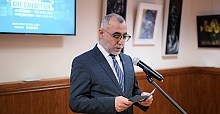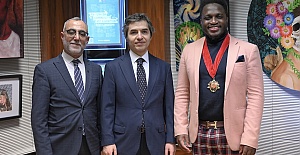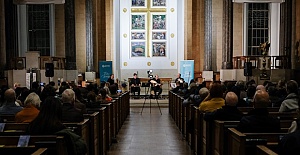This evening I was at the Turkish Embassy in London for the 90th Independence Day celebrations. In brief but pertinent remarks the Ambassador, Unal Cevikoz — one of the most assiduous and popular members of the London diplomatic corps — noted that this year is not only the 90th anniversary of the birth of the Turkish Republic (out of the ashes of the Ottoman Empire) but also the 50th anniversary of the Ankara Agreement, between Turkey and the then European Economic Community, precursor of the European Union. There is understandable resentment among many Turks that half a century on, Turkey does not appear to be all that nearer membership — though not through the fault of the United Kingdom, it has to be said, as all major political parties in Britain are firm supporters of Turkish accession. The Ambassador made reference to that, while also remarking that 2013 is also the 40th anniversary of the UK’s accession to what is now the EU. In a nutshell, he urged Britain to stay in, and to help Turkey in as well — which of course resonated with all the Liberal Democrats in the room, and indeed politicians of other parties present. As the Ambassador declared, Mustafa Kemal Ataturk’s vision was to modernise Turkey and to make it a Western nation (in parenthesis, one should note that even if the 19th century Great Powers’ description of Turkey as the “Sick Man of Europe” was derogatory, nonetheless they accepted that Turkey was a European nation. Of course, Turkey secular, democratic development has not been entirely along Western European lines, but that is hardly surprising or indeed a matter of great contention. It is true that some events this year have raised eyebrows in Europe — and rightly so — but the general direction is positive, and economically Turkey has been advancing at a rate that Europe can only envy. I am one of those who believes that Turkey, like Britain, should not only be in Europe but also should be at the heart of the EU — and all would benefit from that.
Ambassador, Unal Cevikoz



 After Nesil Caliskan a by-election will be held in Jubilee ward in Enfield
After Nesil Caliskan a by-election will be held in Jubilee ward in Enfield Publishing the analysis, Labour’s Cllr Ergin Erbil said Everybody in Enfield deserves basic rights
Publishing the analysis, Labour’s Cllr Ergin Erbil said Everybody in Enfield deserves basic rights Gaza-Israel conflict Statement from Cllr Ergin Erbil, Leader of Enfield Council
Gaza-Israel conflict Statement from Cllr Ergin Erbil, Leader of Enfield Council Cllr Ergin Erbil was elected as the new Leader of Enfield Council
Cllr Ergin Erbil was elected as the new Leader of Enfield Council The European Union called on Turkey to uphold democratic values
The European Union called on Turkey to uphold democratic values Turkish citizens in London said Rights, Law, Justice
Turkish citizens in London said Rights, Law, Justice The Council of Turkish Cypriot Associations Geneva response letter
The Council of Turkish Cypriot Associations Geneva response letter Sustainable Development and ESG, Will This Become the Course for Turkic World
Sustainable Development and ESG, Will This Become the Course for Turkic World Saran Media And Euroleague Basketball Extend Media Rights Partnership for Four More Years
Saran Media And Euroleague Basketball Extend Media Rights Partnership for Four More Years Will Rangers be Jose Mourinho’s next victim?
Will Rangers be Jose Mourinho’s next victim? Jose Mourinho's Fenerbahce face Rangers on Thursday
Jose Mourinho's Fenerbahce face Rangers on Thursday Inzaghi stated that they felt the absence of our national player Hakan Çalhanoğlu
Inzaghi stated that they felt the absence of our national player Hakan Çalhanoğlu Enfield Council at a special awards ceremony
Enfield Council at a special awards ceremony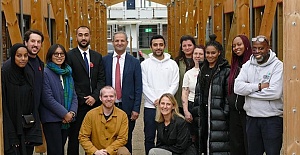 Enfield Council continues to invest in Edmonton, supported by £11.9 million in funding
Enfield Council continues to invest in Edmonton, supported by £11.9 million in funding Survey shows improvements in Enfield Council’s housing services
Survey shows improvements in Enfield Council’s housing services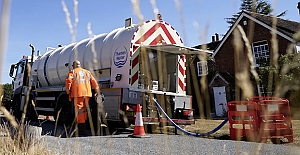 Why is Thames Water in so much trouble?
Why is Thames Water in so much trouble?


